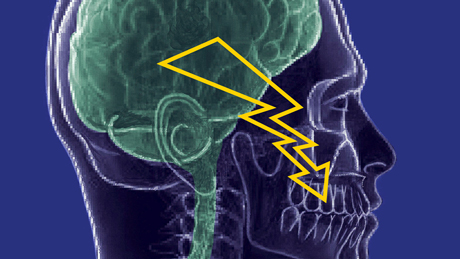New Compound, BIIB074, May Ease Trigeminal Neuralgia Pain with Fewer Side Effects, Study Says
Written by |

Photo courtesy Center of Dental Medicine, University of Zurich
Treatment with a compound called BIIB074 shows promise in reducing pain caused by trigeminal neuralgia — a condition that occasionally affects multiple sclerosis (MS) patients — with few side effects, a new clinical trial finds.
The Swiss study, “Safety and efficacy of a Nav1.7 selective sodium channel blocker in Titrigeminal neuralgia: a double-blind, placebo-controlled, randomised withdrawal phase 2a trial,” appeared in the journal The Lancet Neurology.
Trigeminal neuralgia refers to sharp, acute pain in the teeth or face. It is caused by irritation of the trigeminal nerve, which stimulates the face, parts of the scalp and the oral cavity. Simple stimuli can irritate nerves, like touch, applying makeup, showering, talking, or even feeling a gust of wind.
Current treatment includes blockers of sodium channels such as carbamazepine and oxcarbazepine, but these drugs inhibit the channels whether they are active and causing pain or not, and for this reason have unwanted side effects.
The Phase 2a trial (NCT01540630), conducted by the Center of Dental Medicine at the University of Zurich in Switzerland, involved 67 adults with trigeminal neuralgia. Researchers investigated the efficacy and safety of BIIB074, a blocker of sodium channels known to be responsible for pain and intensity.
Patients were initially assigned to receive oral BIIB074 (150 mg) three times a day for 21 days. Responsive patients were then randomly assigned to receive BIIB074 or placebo for up to 28 days in a second phase. The study’s endpoint was the difference between groups in the number of patients classified as treatment failures during the second phase.
Of the initial 67 patients, 29 entered the study’s second phase; 15 received BIIB074 treatment and 14 received a placebo. Five patients in the BIIB074 group and nine in the placebo group were classified as treatment failures.
The patients tolerated BIIB074 without severe or serious adverse events. Reported side effects occurring in the study’s first part included headache and dizziness, whereas in the second part, the most common side effects were headache, pyrexia (fever), nasopharyngitis, sleep disorder and tremor.
Although treatment failure was not significantly lower in the BIIB074 group compared to the placebo group, researchers believe more studies are needed to measure the effect of BIIB074 on patients with trigeminal neuralgia.
BIIB074 acts when its target sodium channel is active; the more active, the more pain, but the greater is the treatment’s effect. That runs contrary to the other blockers, which inhibit channels even when they’re inactive – hence, the potential for unwanted side effects.
“Unlike conventional drugs, which often cause tiredness and concentration problems, BIIB074 was not only effective, but also very well tolerated,” Dominik Ettlin, one of the study’s authors, said in a news release. “We will now test the new substance in a lot more subjects during the next study phase, which will reveal whether the new hope for more effective pain relief is justified.”
About 13 in 100,000 Americans are diagnosed with trigeminal neuralgia every year, and the condition affects more women than men. Around 1 percent of all MS patients develop trigeminal neuralgia.


